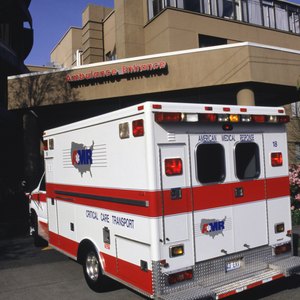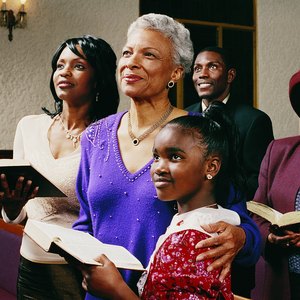
Typically, when someone refers to a community resource, they mean an organization that serves a particular geographical area or group of people by providing tools to help that community grow in positive ways and improve the quality of life for the people of that community. As such, community resources can be run or funded by the government, businesses, non-profit groups, or even individuals and serve the community in a variety of ways.
Financial Assistance Organizations

Many communities have at least one organization that offers some form of financial assistance to individuals and families who meet certain income guidelines. For example, county Human Services offices operate the government-funded TANF program, the food stamp program, and Medicaid program. Food banks provide food to those who cannot afford it or who may be homeless. Private charitable organizations often offer one-time assistance to help low-income individuals pay utility bills.
Educational Organizations

While many people may overlook them when considering examples of community resources, schools, colleges and other educational institutions are funded by local communities through tax revenue and run by groups of individuals elected by the community. In addition to providing education to community members, many educational organizations provide opportunities for socialization among community members through sports, theater, and music programs.
Health Care Organizations

Hospitals, community clinics, and public health organizations are all considered community resources, whether they are funded by private non-profit groups or local, state, or Federal government sources. Health care organizations are essential community resources, particularly for individuals who are disabled, chronically ill, or do not have the financial resources to access private health care providers.
Religious and Cultural Organizations

Although they serve the community in very different ways than most other community resources, religious and cultural organizations, including but not limited to churches, synagogues, ethnic leagues, or veterans associations, are important to the overall functioning and health of the community as well. They provide for community members' more abstract needs, such as the need to belong and to feel meaningful connections with other individuals.
References
- Building Communities from the Inside Out; John P. Kretzmann & John L. McKnight; 1997.

